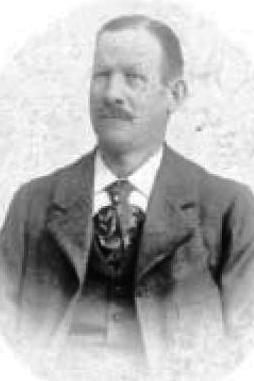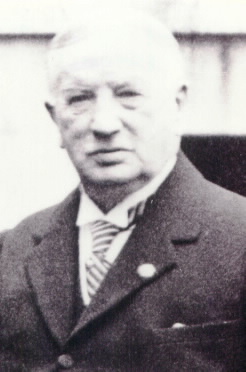Related Research Articles
Eusko Gudariak was the republican anthem of the Eusko Gudarostea, the army of the Basque Autonomous Government during the Spanish Civil War. The song used to refer to the defense of the Basque country within the Republic of Spain against the nationalist Spain army.

Basque nationalism is a form of nationalism that asserts that Basques, an ethnic group indigenous to the western Pyrenees, are a nation and promotes the political unity of the Basques, today scattered between Spain and France. Since its inception in the late 19th century, Basque nationalism has included Basque independence movements.

Gernikako Arbola is an oak tree that symbolizes traditional freedoms for the Biscayan people, and by extension for the Basque people as a whole. The Lords of Biscay swore to respect the Biscayan liberties under it, and the modern Lehendakari of the Basque Country swears his charge there.

Marcha de Oriamendi, is the anthem of the Carlist movement. The name of the anthem stems from the battle of Oriamendi which took place in 1837 during the First Carlist War.

Aibar is a town located in the province of Navarre, in the autonomous community of Navarre, northern Spain.

Atez is a town and municipality located in the province and autonomous community of Navarre, northern Spain.

Etxarri-Aranatz is a town and municipality located in the province and autonomous community of Navarre, northern Spain. Etxarri-Aranatz was founded in 1312.
Sesma is a town and municipality located in the province and autonomous community of Navarre, northern Spain. It was the scene of action between Liberals under Narciso Lopez, and Carlists under Mendiry, during the First Carlist War, on 5th. November 1834 following the Carlist victory at Vitoria.

Augustin Chaho in French or Agosti Xaho in Basque was an important Romantic Basque writer. He was born in Tardets, Soule, French Basqueland on 10 October 1811 and died in Bayonne, Labourd 23 October 1858. He is considered a precursor of left-wing Basque patriotism.
Manuel de Aróstegui Sáenz de Olamendi was a liberal Spanish politician from the Basque Country.
Esteban de Bilbao Eguía, 1st Marquess of Bilbao Eguía was a Spanish politician during the dictatorship of Francisco Franco.

Ignacio Baleztena Ascárate (1887–1972) was a Spanish folk customs expert, a Carlist politician and soldier.

Ramón Altarriba y Villanueva, 1st Count of Altarriba, 24th Baron of Sangarrén (1841–1906), was a Spanish Carlist politician, landowner, publisher, and soldier. During the Third Carlist War he commanded battalion-size legitimist units. He represented the party in the lower chamber of the Cortes during 2 terms of 1879-1881 and 1886-1890. In the 1890s and early 1900s he served as the party leader in the region of Old Castile, though as one of the largest landholders in Gipuzkoa he exerted also enormous influence in the province.

Julio de Urquijo e Ibarra, Count of Urquijo (1871-1950), in Basque self-styled as Julio Urkixokoa, was a Basque linguist, cultural activist, and a Spanish Carlist politician. As a Traditionalist deputy he twice served in the Cortes, during the terms of 1903-1905 and 1931-1933, though the climax of his political activity fell on the late Restoration period. As a scientist he was the moving spirit behind setting up numerous vascologist institutions, especially Revista Internacional de Estudios Vascos (1907) and Sociedad de Estudios Vascos (1918). Himself he specialized in Basque paremiology and bibliography. He opposed academy-driven unification of Basque dialects and preferred to wait until standard Basque emerges naturally.

Romualdo Cesáreo Sanz Escartín (1844-1923) was a Spanish Carlist politician and military leader. He is known mostly as a longtime Cortes member, first as a deputy and later as a senator, in both cases representing Navarre. In 1918-1919 he briefly served as provisional leader of Carlist political structures in Spain.

Francisco Javier Girón, 2nd Duke of Ahumada was a Spanish Army officer known for being the founder of the Civil Guard and its first director-general.

The Auñamendi Encyclopedia is the largest encyclopedia of Basque culture and society, with 120,000 articles and more than 67,000 images.

Blas Morte Sodornil (1849-1921) was a Spanish entrepreneur, a regional high self-government official and a Carlist politician. He is known mostly as vice-president and de facto acting president of Diputación Foral, the Navarrese regional self-government, holding the post during two successive terms between 1913 and 1917. In the early 1920s he headed the Carlist regional organization in Navarre and was nearly appointed the party nationwide leader. In business he rose from owner of a petty stonemasonry workshop to businessman with international connections, active in the construction, wood, trade, sugar and agriculture industry.

Amadeo Marco Ilincheta (1900-1987) was a Spanish Traditionalist politician, until 1942 active within the Carlist movement and afterwards in the Francoist structures. He is best known as the iconic Navarrese personality of the Franco era, principally as a longtime member of the regional self-government, Diputación Foral. He served as representative of the Aoiz-Sangüesa district in 1931 and then continuously during 6 successive terms in 1940–1979; during a few strings he was acting president of the Diputation. In 1943-1954 and in 1967-1977 he held a seat in the Francoist Cortes. In 1942-1954 he was a member of the Falange Española Tradicionalista executive, Consejo Nacional. Since 1927 he intermittently served as the mayor of Navascués.

Teodoro Benigno Ignacio de Arana y Beláustegui (1858-1945) was a Spanish Carlist politician. His career climaxed during last decades of the Restoration period: in 1903 he was elected to Congreso de los Diputados, the lower chamber of the Cortes, and in 1905, 1916 and 1918 he was voted into the Senate. In two separate spells of 1915-1919 and 1923-1932 Arana served as leader of the Biscay branch of Carlism. He was also known as a vehement advocate of separate legal establishments for the Basque provinces, as the author of a related pamphlet and as a promoter of Basque culture. He was the first person in Spain to send a telegram in Basque.
References
- ↑ "TIRAPEGUI - Auñamendi Eusko Entziklopedia". aunamendi.eusko-ikaskuntza.eus (in Basque). Retrieved 2023-04-05.